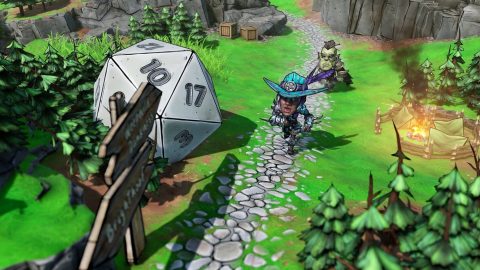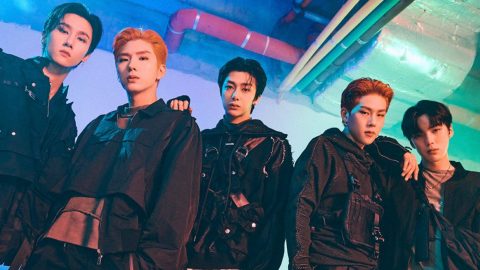
At midnight every night, or as close to it as I remember, I point my phone towards the Wordle website and spend five or ten minutes thinking of all of the words I have forgotten. As the jokes, memes and friends’ social media timelines I’m seeing suggest, I am far from the only one.
At its core, Wordle is a simple folk game with very few rules. There is a five-letter
word that you have to guess. Every guess you make has to be a real word. If you get
the word right, every letter turns green and you win. If you get it wrong, each letter
changes colour based on how close you were – if it’s the right letter in the right
place, it goes green; if it’s the right letter in the wrong place, it goes yellow. You get
six goes.
The structure of the game will be familiar for anyone who played the code-breaking
board game Mastermind when they were younger (or for those in the Netherlands,
those who watched the game show Lingo). What Wordle brings is not having to
fiddle with tiny plastic pegs or convince a friend to play.
Although an update to the game in December did go a long way to convincing more
people to play. The update allowed players to export their daily attempts in a manner
that wouldn’t spoil the game for others: showing how many tries it took, whether they
were playing hard mode (that’s what the asterisk means), and the success / fail
pattern of their attempt – the greys, the yellows, the greens.
Wordle 209 4/6*
—
sean f smith
(@seanFsmith) January 14, 2022
It’s more than just seeing your friends are also playing the same game. With Wordle,
they are playing the same match. Every day, everyone in the world guesses the
exact same target word.

As with any good trend, this easily creates an in-group: a group who are advertising
to each other their successes, and doing so publicly and in a cryptic fashion. The first
comfort comes in seeing the patterns and understanding them; the second comfort
comes in recognising the shared struggle: how many guesses before we remember
Americans spell favour without U?, how did they guess tapir on the second try?
Furthermore, the very pattern of the shared success stories is like catnip to curious
puzzle gamers. In cutting the letters from the shared patterns, they look even more
like a puzzle. Gallons of pixels have been spilled in consideration of player
psychology, so I’ll not do so here: but if I were to bet, I’d say it’s less the Fear Of
Missing Out that’s drawing in new players but the fact puzzle fans hunger to work
out what’s going on. I wouldn’t be surprised if there were an edge of nostalgia to it
too. Wordle isn’t quite the same as hangman, but it easily scratches that same itch.
Wordle is the creation of programmer Josh Wardle, pun wholly intended. While
Wordle is his first production that both looks and plays like a game, it isn’t his first
viral creation. He is also the brains behind the 2015 social experiment and meta-
game “The Button” and 2017’s “Place”.
The Button was announced on the front page of reddit on April Fool’s Day 2015,
where it was linked to a sixty-second timer that reset each time the button was
pressed. There were only a few rules: only reddit accounts that existed before the
Button could press it, and each account could only press it once. It took three
months for the counter to hit zero.

Place was also announced on April Fool’s Day. It took the form of a 1000 x 1000
pixel canvas, where any user could change the colour of any pixel. The limits this
time were different. First: users could change multiple pixels, but they would have to
wait five minutes between each change. Second: Place was only live for three days.
Of course, the earliest contributions ended up being crude words and drawings, but
these were soon covered up by larger self-organised projects. At its end, Place
featured several flags of different countries, a faithful replica of the Mona Lisa, and
the Linux penguin.
Wardle’s latest project approaches the massively multiplayer angle in a different
way, but consistently his works encourage play.
Why is Wordle so compelling? The game’s website itself is super clean with grey
boxes on a plain background, and a native keyboard whose colours update based on
your prior guesses. Although it’s hosted on Wardle’s own website, it doesn’t link to
the main site. There are no ads, no distractions, not even a fancy logo.
What’s more the game updates every twenty-four hours based on your local time.
Even if you wanted to play previous days, you just cannot. The game gives you a
daily puzzle and then asks nothing more of your time. It’s hard to get too full when
you have to wait between courses.
Compared to its analogue predecessor, Mastermind, Wordle’s target word each day
is probably already in your head. You’re not trying to puzzle out an abstract string of
meaningless colours. The pattern innately has meaning and you’re able to make
informed guesses as to what might come next. In fact, if you’re playing on the hard
difficulty setting, you have to take advantage of every clue you’ve discovered so far.
And if you’re struggling? Wordle’s complete word list is visible if you just inspect its
code.
Wordle is available to play for free on PC and mobile platforms.
The post Why ‘Wordle’ is all over your timeline appeared first on NME.











